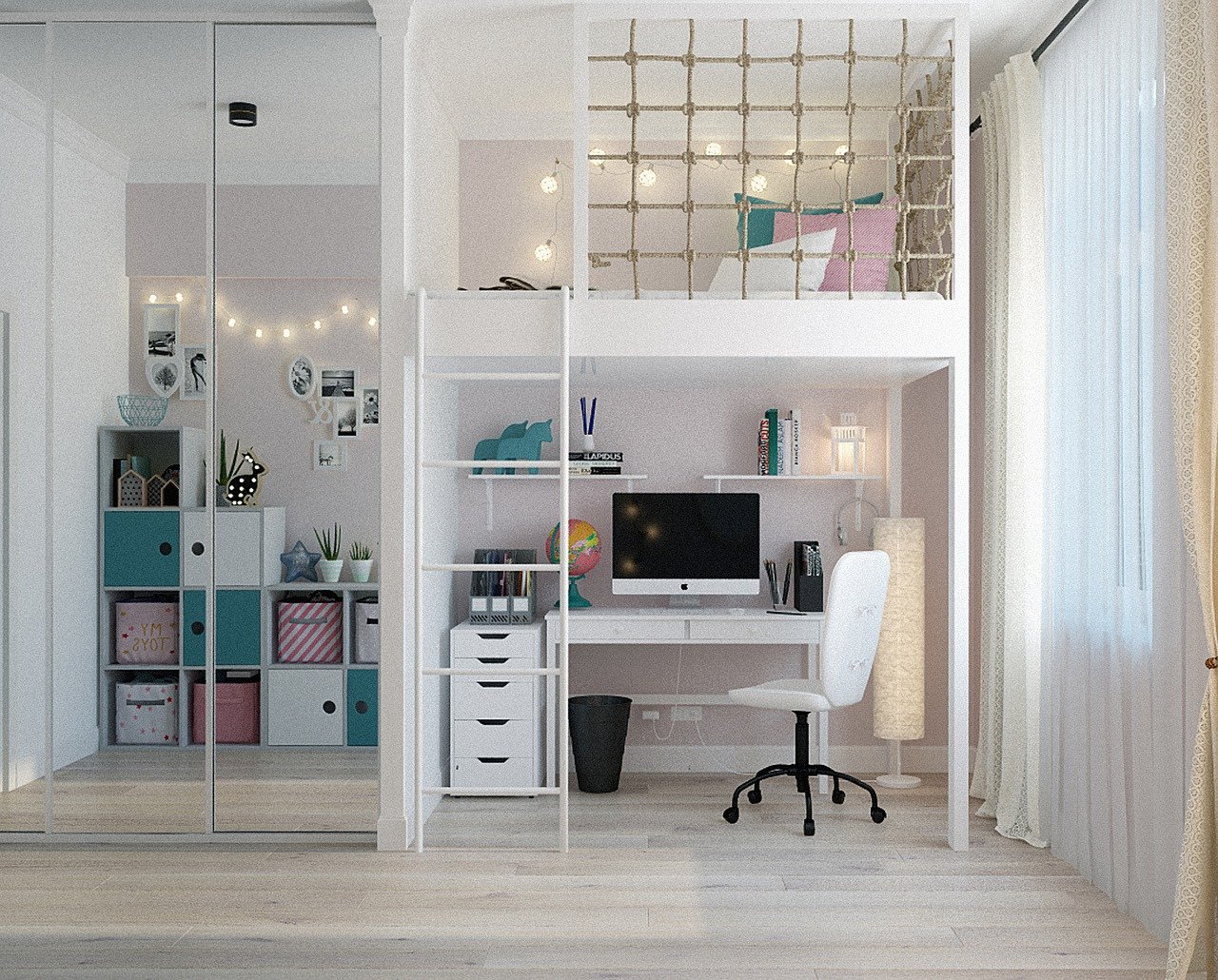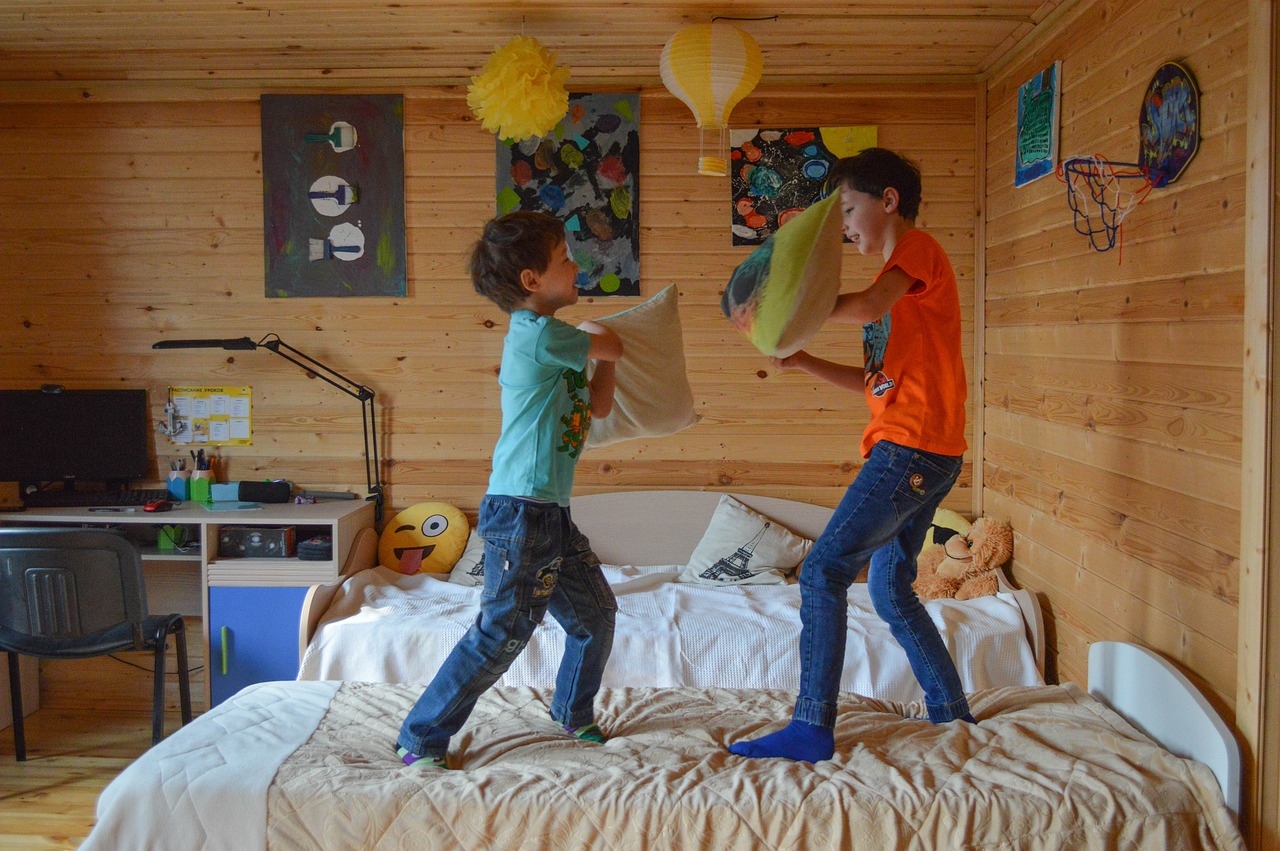When you have more than one child, you may want to consider having them share a bedroom.
Not only can this help them to be a bit neater, from wanting to keep their things away from their sibling, but can also help them to appreciate the things they do have a bit more.
If your children aren’t used to sharing a room, it can be tricky to get them into a habit of sharing a space but, with some careful planning and fair treatment, it is certainly possible.
Design of Beds
Having two beds in a single bedroom can take up a lot of space. One of the common alternatives to this can be bunkbeds.co.uk, however this may cause squabbling regarding who has the top and bottom bunks.
If the room is large enough, you may want to consider highsleeper beds from roomtogrow.co.uk, as these will allow both children to effectively have the ‘top bunk’.
On top of this, they can also be used to help maximise the space in the room through having storage or desk facilities underneath.
This means that your children will have more space to play overall, as well as having their own designated sections to keep their belongings.
Equality
Another factor in helping children share a bedroom is to treat them fairly. If one child perceives that the other has a greater amount of space in the room, this can lead to disputes.
In regard to sharing a bedroom, as well as parenting as a whole, showing fairness among children is essential. This can be especially true with blended families, as step-children may feel less included in the family environment if they are given less preferential treatment than blood counterparts.
If step-children need to share a bedroom, it may be a good idea for any blood children to also need to share a space, so there can be no complaints regarding one child getting treated better than another.
Consider if it is Appropriate
While sharing a bedroom can help if space in the home is limited, you may also need to consider how appropriate it is for the children to share.
Two similar-aged children of the same gender might not have a problem with sharing; however, it can be unfair to expect a teenager to share with a toddler sibling, or even opposite gendered children to share once they reach a certain age.
If this is the case, you may need to think of alternatives, such as turning a home office into a bedroom, additional works on the property, or even moving. Although this may seem like a lot of work, it can greatly help with your child’s mental health, as well as their rights to privacy.
Getting children to share a bedroom might be tricky, but it can be made to work. You may need to incentivise your children to accept this change, as well as keep communication open. By listening to any concerns or complaints your child has, you may be able to improve the situation, as well as the family dynamic as a whole.



